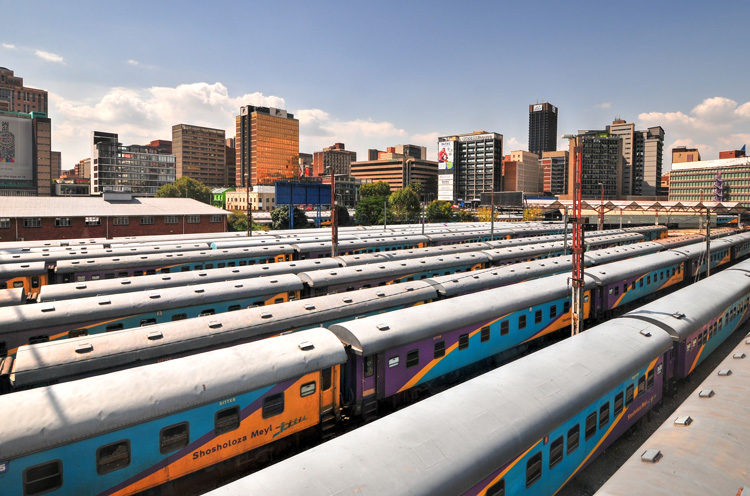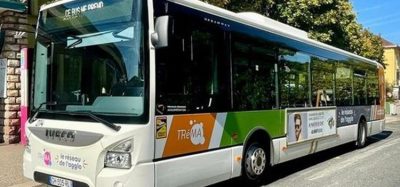10 projects selected to solve transport challenges in low-income countries
- Like
- Digg
- Del
- Tumblr
- VKontakte
- Buffer
- Love This
- Odnoklassniki
- Meneame
- Blogger
- Amazon
- Yahoo Mail
- Gmail
- AOL
- Newsvine
- HackerNews
- Evernote
- MySpace
- Mail.ru
- Viadeo
- Line
- Comments
- Yummly
- SMS
- Viber
- Telegram
- Subscribe
- Skype
- Facebook Messenger
- Kakao
- LiveJournal
- Yammer
- Edgar
- Fintel
- Mix
- Instapaper
- Copy Link
Posted: 8 September 2020 | Sam Mehmet (Intelligent Transport)
The awarded projects aim to seek solutions to issues such as climate resilient road surfaces, effective integration of the informal transport sector in cities, and practical solutions to reduce sexual harassment of women and girls on transport.


The High Volume Transport Programme (HVT), a UK Aid-funded research programme from the Foreign, Commonwealth and Development Office (FCDO), has announced that 10 projects have been commissioned to produce research to help increase access to transport services and make transport more inclusive, safer and greener in low-income countries (LICs).
The projects are said to be especially crucial with COVID-19 presenting unprecedented challenges to the transport sector and the world. The 10 projects will be implemented across Nigeria, Sierra Leone, Ghana, Tanzania, Ethiopia, Kenya, Zimbabwe, South Africa and Mozambique over the next 14 months to two years.
The 10 projects are:
- TRANSitions (Vectos South Ltd): Transitioning the policy debate, stakeholder relations and informal transport services for a low carbon future. Research on the role of informal transport in the global south and how this can be transformed to a cleaner, more affordable, and efficient solution for HVT across West Africa
- City Retrofit for All (Institute for Transportation & Development Policy): Research to better understand how to maximise the potential of lower density urban sprawl facilitated by transit-oriented interventions within the existing built-up area of rapidly urbanising cities in LICs in Africa, particularly Ethiopia and Tanzania
- Inclusive climate resilient transport planning in low income countries in Africa (University of York): The project is designed to deliver a “Guidance Framework for Inclusive Climate Resilient Transport” based on a review and critical appraisal of state-of-knowledge, best practice and in-country applications in Ethiopia, Rwanda, Uganda and Zambia
- Climate resilient sustainable road pavement surfacing (University of Birmingham): The project aims to assess the applicability of three types of road surfacing technologies in Ethiopia to demonstrate their technical and economic suitability for the range of traffic and environmental conditions of high volume roads typically seen in LICs
- Novel traction systems for sustainable railway futures in LICs (University of Birmingham): The project intends to explore cost-effective traction solutions for sustainable railway futures in Sub-Saharan LICs
- Africa Urban Mobility Observatory (GoMetro): Big Data applications will generate data, benchmark performance, and draw policy insights to inform city Action Plans and promote inclusive, low-carbon mobility in African LIC cities in Tanzania and Ethiopia
- Decision Support Systems for Resilient Strategic Transport Networks in Low Income Countries (University of Southampton): Support investment decisions and option selection for long distance strategic land transport projects by creating the first multi-state transport infrastructure decision support system in a developing context across Uganda, Zambia, Kenya and Tanzania
- EMPOWER (Vectos South Ltd): Practical tools for decision makers and citizens to tackle sexual harassment in African urban transport. To build the capacity of transport professionals to address sexually related harassment and assault on women and girls when they travel in Nigeria
- An Investigation into the Impact on Social Inclusion of HVT Corridors, and Solutions to Identifying and Preventing Human Trafficking (Cardno Emerging Markets): Research outcomes will inform the design and implementation of a pilot activity aimed at embedding HVT into the prevention and response to human trafficking in Tanzania and Uganda
- Women’s Personal Safety, Participation and Employment Linkage in Urban Public Transport (ALERT Engineering): Applied research to assess women’s safety, participation, travel patterns on urban transport services, role of women in decision making and job opportunities in transport in Ethiopia.
Related topics
Fleet Management & Maintenance, Infrastructure & Urban Planning, Passenger Accessibility, Passenger Experience, Public Transport, Staff & Skills Development, Sustainable Urban Transport, Transport Governance & Policy, Vehicle & Passenger Safety
Related organisations
High Volume Transport Programme (HVT)








